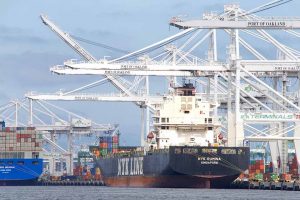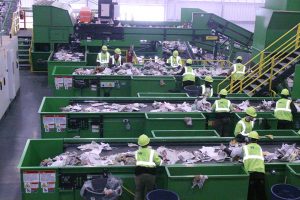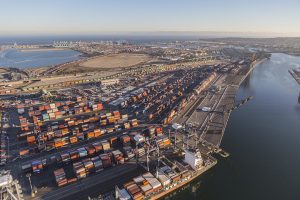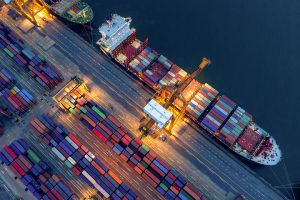 The leader of California’s recycling agency recently weighed in on China’s import restrictions, addressing concerns he’s heard from local government and industry representatives.
The leader of California’s recycling agency recently weighed in on China’s import restrictions, addressing concerns he’s heard from local government and industry representatives.

 The leader of California’s recycling agency recently weighed in on China’s import restrictions, addressing concerns he’s heard from local government and industry representatives.
The leader of California’s recycling agency recently weighed in on China’s import restrictions, addressing concerns he’s heard from local government and industry representatives.
 California officials will slow their process of crafting mandatory recycling rules for packaging, citing upheavals caused by China’s import restrictions.
California officials will slow their process of crafting mandatory recycling rules for packaging, citing upheavals caused by China’s import restrictions.
 China has ratcheted up inspection requirements for recyclables imported from the U.S., requiring every load to be opened for inspection and shutting down the only organization providing pre-shipment approval in the U.S.
China has ratcheted up inspection requirements for recyclables imported from the U.S., requiring every load to be opened for inspection and shutting down the only organization providing pre-shipment approval in the U.S.
 Facing rock-bottom fiber prices, Waste Management’s recycling revenues experienced a 16 percent decrease during the first quarter of 2018.
Facing rock-bottom fiber prices, Waste Management’s recycling revenues experienced a 16 percent decrease during the first quarter of 2018.
 Chinese authorities plan to halt imports of more scrap categories by the end of the year, including post-industrial scrap plastic and a variety of scrap metals. The country also announced a list of even more imports it will ban by the end of 2019.
Chinese authorities plan to halt imports of more scrap categories by the end of the year, including post-industrial scrap plastic and a variety of scrap metals. The country also announced a list of even more imports it will ban by the end of 2019.
China has issued its latest round of import permits for scrap paper and plastics, and approved volumes remain particularly low on the plastics side.

In the course of one year, Los Angeles-area exporters cut their scrap polyethylene shipments to China by 99 percent, leaving thousands of tons of plastic looking for a home. Other countries were only able to absorb about one-fifth of the volume.
 The U.S. has become a focus of investment for a small yet growing portion of the Chinese scrap processing industry. Backers of two in-development operations note they are looking for regulatory stability and a strong supply of recyclables.
The U.S. has become a focus of investment for a small yet growing portion of the Chinese scrap processing industry. Backers of two in-development operations note they are looking for regulatory stability and a strong supply of recyclables.
 Chinese officials have accused the U.S. of hypocrisy for denigrating the scrap imports ban amid a brewing trade war between the two nations.
Chinese officials have accused the U.S. of hypocrisy for denigrating the scrap imports ban amid a brewing trade war between the two nations.
